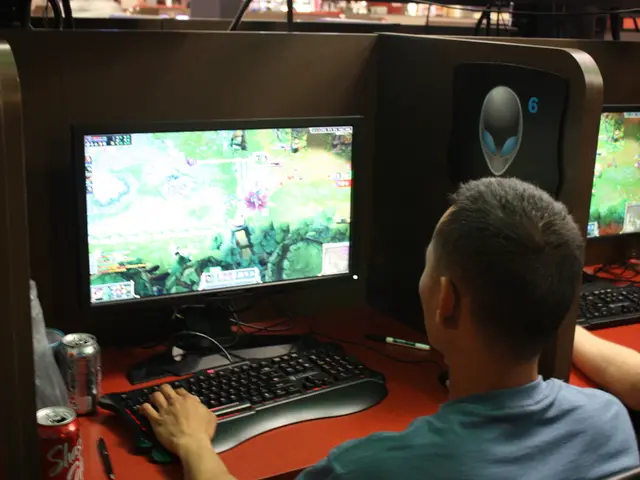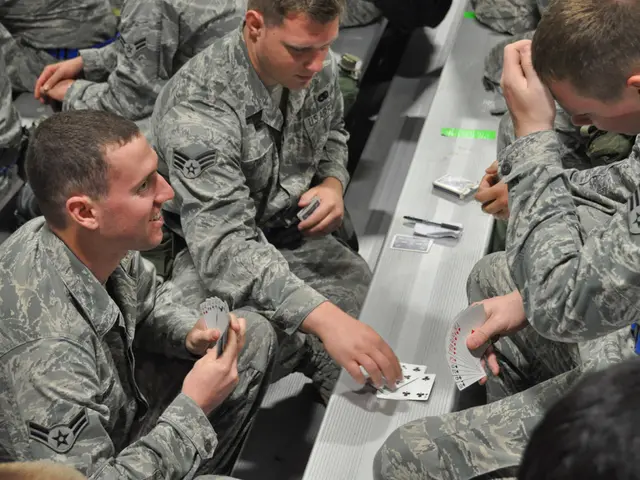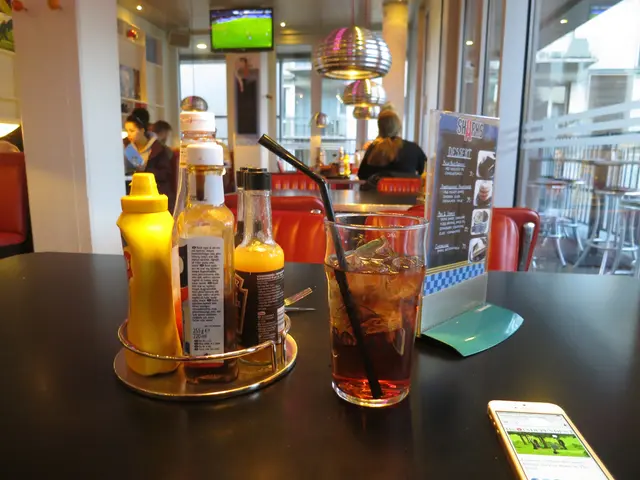Gaming regulator advocates for unity to tackle gambling-related issues
The Philippines is taking strides to ensure the safety and well-being of its residents, particularly those involved in gambling activities. A diverse group of key stakeholders, including PAGCOR, regulators, industry leaders, health experts, and academics, are working together to address and prevent problem gambling.
PAGCOR and Regulatory Efforts
PAGCOR, the Philippine Amusement and Gaming Corporation, is collaborating with the PlaySafe Alliance of the Philippines, a collective of licensed gaming operators. This partnership aims to strengthen industry oversight and compliance, focusing on enhancing "Know-Your-Customer" processes such as age verification and self-exclusion programs. These measures are designed to combat illegal online gaming [3].
Regulatory and Central Bank Initiatives
The Bangko Sentral ng Pilipinas (BSP), the central bank of the Philippines, is implementing new rules to mitigate financial risks associated with online gambling. These measures include stricter identity verification, daily caps on gambling-related transfers, and user tools to set spending limits. This initiative aims to reduce addiction, fraud, and financial harm [1].
Industry and Academic Collaborations
The PlaySafe Alliance is investing in Research, Education, Prevention, and Treatment (REPT) programs. This includes a 24/7 National Gambling Helpline, reflecting a broader commitment to consumer education and support [3]. Additionally, the PlaySafe Alliance plans to onboard an independent advisory panel consisting of local and international experts. This panel will likely include health experts and academics who can provide insights into gambling addiction and prevention strategies [3].
While specific details about direct collaborations between health experts, academics, and other stakeholders are limited, the nature of these efforts implies a comprehensive approach. The involvement of international experts and the emphasis on education and treatment suggest a collaborative framework that values input from health and academic communities.
PAGCOR's Commitment to Responsible Gaming
PAGCOR has policies in place to reduce exposure to gambling risks among vulnerable groups. For instance, minors, students, and active government personnel are excluded from entering gaming venues. PAGCOR's Responsible Gaming Program allows individuals or their families to request exclusion from gambling activities [3]. However, no information was provided about the number of individuals or families requesting exclusion from gambling activities.
PAGCOR also monitors advertising practices to ensure compliance. Gaming venues under PAGCOR's jurisdiction are subject to social risk management. Furthermore, PAGCOR collaborates with rehabilitation centers to support those affected by gambling-related issues. Unfortunately, no specific information was provided about the advertising practices being monitored by PAGCOR or the nature of these collaborations with rehabilitation centers.
In conclusion, these collaborative efforts aim to create a safer and more responsible gambling environment by addressing concerns such as addiction, fraud, and financial harm. The commitment to cross-sector cooperation and the emphasis on education, prevention, and treatment are promising steps towards a more responsible gambling culture in the Philippines.
The collaboration between PAGCOR and the PlaySafe Alliance includes strengthening industry oversight and compliance, focusing on responsible gambling measures such as age verification and self-exclusion programs to combat problem gambling. [Casino-and-gambling, responsible-gambling]
The PlaySafe Alliance, in partnership with health experts and academics, invests in REPT programs, including a 24/7 National Gambling Helpline, reflecting a broader commitment to education and support for responsible gambling. [Casino-and-gambling, responsible-gambling]








